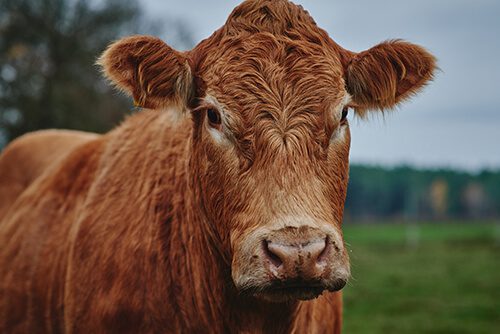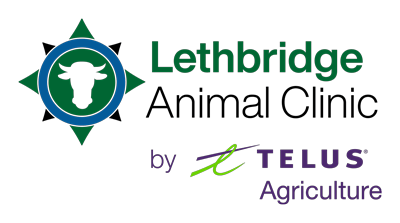Common Health Problems in Calves
Caring for calves is a big responsibility. These young animals are not just future dairy or beef providers; they’re an essential part of a farm’s family and future. Understanding common health problems in calves is key to keeping them happy and healthy. We’ll take a look at some of the health challenges these young animals face and offer insights on how to support their well-being. If you’re in Lethbridge, AB, and have concerns or need guidance about your calf’s health, Lethbridge Animal Clinic is here for you. Give us a call at (403) 327-4150 for advice or to schedule an appointment.

Digestive Disorders
Digestive problems are among the top health issues in calves. These can range from diarrhea, often known as “scours,” to more complex conditions like bloat or abomasal disorders. Scours can be caused by bacteria, viruses, or parasites, and keeping calves in clean, dry environments is crucial to prevention. Bloat, on the other hand, occurs when gas builds up in the stomach, making it hard for the calf to breathe. It’s essential to monitor feeding practices and ensure calves are not eating too fast or consuming feed that’s too rich for their young digestive systems.
How to Spot Digestive Issues
Keep an eye out for symptoms like loose stools, loss of appetite, a bloated abdomen, or the calf appearing uncomfortable and restless. Early detection and action are key to managing these issues effectively. However, it’s important to reach out to a professional like Lethbridge Animal Clinic for a proper diagnosis and treatment plan.
Respiratory Problems
Respiratory issues are another common challenge for calves. These can include pneumonia, which is particularly dangerous in young calves due to their developing immune systems. Factors such as poor ventilation, overcrowding, and sudden changes in weather can contribute to respiratory problems. Symptoms to watch for include coughing, nasal discharge, fever, and difficulty breathing.
Keeping Calves Healthy
Ensuring good air quality, adequate space, and proper nutrition can help prevent these problems. Vaccinations and routine health checks are also vital strategies in keeping respiratory issues at bay. If you notice any signs of respiratory distress in your calf, contacting Lethbridge Animal Clinic is a crucial step towards their recovery.
Joint and Muscle Issues
Calves can also experience joint and muscle problems, such as joint ill or nutritional myodegeneration (white muscle disease). Joint ill is an infection that affects the joints, making them swollen and painful, while white muscle disease is caused by a deficiency in selenium or vitamin E, leading to weak muscles and difficulty standing.
Prevention and Care
Preventative measures include maintaining a clean environment, ensuring a balanced diet rich in essential nutrients, and regular health assessments to catch any signs of illness early. Immediate attention from a veterinarian is necessary if a calf shows signs of joint pain or muscle weakness to prevent long-term damage.
Lethbridge Animal Clinic is Committed to Your Calves Health
Caring for calves means being vigilant about their health and environment. Understanding common health problems in calves and taking steps to prevent them can lead to happier, healthier animals. If you’re ever unsure or need support, remember that Lethbridge Animal Clinic is here to help. Give us a call at (403) 327-4150 to talk about your calf’s health or to make an appointment. Together, we can ensure your calves grow up strong and healthy.
Taking care of calves is a rewarding task that requires attention and knowledge. By keeping informed about the health problems that can affect them and how to prevent these issues, you’re ensuring a bright future for your calves. Remember, the team at Lethbridge Animal Clinic is always ready to assist with any concerns or questions you might have. Your commitment to their well-being is the first step towards a healthy life for these young animals.
